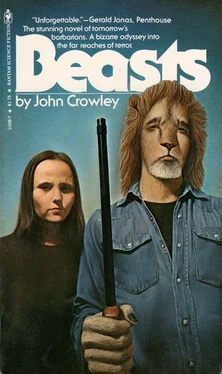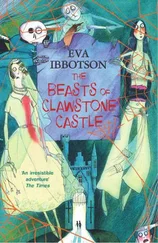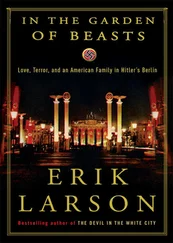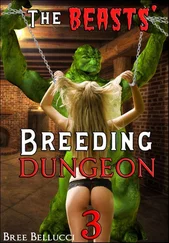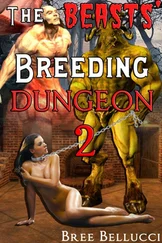Beneath his signature he had added another sentence, less like an afterthought than an admission that he had known all along he must make but which had been wrung from him only at the last moment: “I’m very very sorry about Hawk.”
For a tense and ominous week after Nashe’s fall the three of them waited for the new government to notice them. It would be like the Federal in its mindless thoroughness to attempt something against the heir of Gregorius, but nothing happened. They remained as free within the estate as they had been. People came, not sent by any government, but impelled by some need to gather at a center. They camped outside the walls or loitered in groups beyond the barred gates, looking in. They went away, others came. Still no official change in their status came.
But Sten felt a change. Where before he had felt isolated, hidden, protected even in his redoubt with Loren and Mika, safe from the consequences of his complicity in his father’s murder, now he began to feel imprisoned. The night when he had watched the leos, cut off and surrounded in their mountains, and listened to the pale powerless man admit that he and the girl would die with them, unable to struggle against it, Sten had felt torn between contempt and longing: he wanted somehow to help them; he knew he would never, never surrender like that, accede to powerlessness as that man had; and at the same time he saw that he too was as chained, as powerless as they were.
Now Nashe had given in, and the same Federal government that hunted the leos surrounded Sten, strangling him, waiting for him to starve to death. He felt a suffocating sense of urgency, a feeling that wouldn’t diminish; the more the invisible chains bound him, the harder he pressed against them.
Even Loren, now, seemed interested only in restraining him. Where before they had stood in a kind of balance, each. as it were, holding a hand of Mika’s to keep themselves stable, now they had begun to rock dangerously. Loren issued commands; Sten flouted them. Loren lectured; Sten was mum. Sten saw, shocked, that Loren was afraid; and not wanting to, he began to press Loren’s fear, as though to see if it was really real.
“Are they still out there?” Mika asked.
“Don’t acknowledge them,” Loren said. “Don’t encourage them. Don’t…”
Sten turned away from the bulletproof window of his father’s office, where he had been spying with binoculars at two or three silent, overcoated people who could be seen beyond the gate. “Why is it,” he said to Loren coldly — it was his father’s penetrating tone — “that you’re always hovering over me?”
Loren, knowing he couldn’t say “Because I love you,” said, “Don’t do anything dumb. It’s all I meant,” and left.
When he was gone, Sten took out the letter again. It had been given to him by the man who brought provisions to the house, handed to him without a word as the man left the kitchen. It wasn’t addressed. It was carelessly typed: if after the manner of men, I have struggled with beasts at Ephesus, what advantageth it me, if the dead rise not? Beneath this, which Mika thought was a quote from the Bible, was a series of numbers and letters. Sten figured out, after much study, that these were geographical co-ordinates, elevations, compass directions. Perhaps he wouldn’t have given it that much study, except that carefully, childishly, scrawled at the bottom was a single letter for a signature: R .
“We should ask Loren,” Mika said.
Sten only shook his head. Why should Reynard reveal to him the place where the leos were hiding? Because Sten was sure now that this was what it was. The maps kept in his father’s office showed him the place Reynard had directed him to: a place in the mountains that bordered the Autonomy on the north, the crest of Genesis Preserve.
“Could it be,” Mika said, “that he meant we should help them? Get to them somehow, and help?”
When, in the old schoolhouse, Reynard had given him this house and this safety, even, probably, his life, in exchange for silence, he had told him: be neither predator nor prey. If that was so, he was in growing trouble here, because he was fleeing, like prey, hiding: from the government, from the people out there — from Loren. If now Reynard had directed him to rise, as from the dead, was it for the leos he was to do so? And did he dare anyway? He did, desperately, want Loren’s advice and help. But Loren had made himself clear about the leos.
“Would you dare?” he said to Mika. “Would you dare go up into the mountains, bring them food?”
Her black eyes grew round at the thought. “What will we tell Loren?”
“Nothing.” Sten felt flooded with a sudden resolve. This would be the unbinding he had been waiting for: he had been called on, and he chose to answer. With Mika, if she dared; alone, if that was how it had to be.
Mika watched him fold the letter carefully, once, again, again, as though he were laying away a secret resolve. Without looking at her, he told her the story of how their father had been killed, and what he had done, and why they had been safe in the house.
“You could stay,” he said. “You’d be safe, here, with Loren.”
She sat silent a long time. It had begun to snow again, a sleety, quick-falling snow that could be heard striking, like a breath endlessly drawn. She thought of them naked, laughing in snow,
“We could use sleds,” she said at last.
That week the telephone lines into the house were cut — perhaps by the snow, perhaps deliberately, they were given no explanation — and Loren began making weekly trips to the nearest town, nearly five miles off, to call their suppliers and to buy newspapers, to see if he could perceive some change in their status, guess what was to become of them. There was no one he trusted whom he could call, no old government official or family lawyer. He knew it was madness to try to hide this way; it couldn’t last. But when he contemplated bringing Sten to official attention, to try to get some judgment made, he shrank from it. Whatever came of it, he was certain they would somehow take him away, somehow part them. He couldn’t imagine any other conclusion.
Returning from town, he pushed his way through the small knot of people at the front gate and let himself in at the wicket. When questions were asked he only smiled and shrugged as though he were idiotic, and concentrated on passing quickly through the wicket and getting it locked again, so as not to tempt anyone to follow, and went quickly up the snow-choked road, away from their voices.
He stopped at the farmhouse and went in. A small cell heater had been brought down from the house and was kept going here always, though it barely took the chill from the stone rooms. That was all Hawk needed.
Hawk was deep in molt. He stood on his screen perch, looking scruffy and unhappy. Two primaries had fallen since Loren had last looked in on him — they fell always in pairs, one from each side, so that Hawk wouldn’t be unbalanced in flight — and Loren picked them up and put them with the others. They could be used to make repairs, if ever Hawk broke a feather; but chiefly they were saved as a baby’s outgrown shoes are saved.
The day was calm and bright, the sun almost hot. He’d take Hawk up to the perch on the lawn.
Speaking softly to him, with a single practiced motion he slipped the hood over Hawk’s face and pulled it tight — it was too stiff, it needed oiling, there was no end to this falconer’s job — and then pulled on his glove. He placed the gloved hand beneath Hawk’s train and brushed the back of his legs gently. Hawk, sensing the higher perch behind him, instinctively stepped backward, up onto the glove. He bated slightly as Loren moved his hand to take the leash, and only when Hawk was firmly settled on his wrist did Loren untie the leash that held him to the perch. As between thieves, there was honor between falconer and bird only when everything was checked and no possibility for betrayal — escape — was allowed.
Читать дальше
